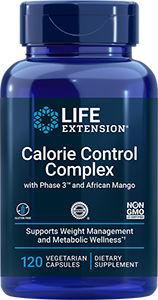 |
January 18, 2011 | Greater zinc intake associated with a lower risk of death from prostate cancer | | An article published online on January 12, 2011 in the American Journal of Clinical Nutrition reveals a protective effect for a higher dietary intake of zinc against mortality from cancer of the prostate gland. Swedish and Harvard University researchers evaluated data from 525 men under the age of 80 enrolled in a case-control study in Sweden. Participants were diagnosed with prostate cancer between January, 1989 and July, 1994. Responses to dietary questionnaires administered upon enrollment were analyzed for the intake of calories, and iron and zinc from food sources. The subjects were followed through February, 2009, during which time the causes of any deaths were confirmed. Over the 6.4 year average follow-up period there were 475 deaths, of which 218 were attributed to prostate cancer. Men whose intake of zinc was among the highest 25 percent of participants at greater than 15.6 milligrams per day had a 36 percent lower adjusted risk of dying from prostate cancer compared with those whose intake was among the lowest fourth. For those whose tumors were localized, there was a 76 percent lower risk among those whose intake was highest compared to men whose intake was least. Iron intake was not significantly associated with prostate cancer mortality and zinc was not associated with death from other causes. The authors of the report note that the results of previous research concerning a protective effect for zinc in the prevention of prostate cancer have been inconsistent, and suggest that zinc could play a greater role in determining outcome of the disease rather than in its development. They remark that zinc is involved in a number of cellular functions, including maintenance of the immune system and DNA repair. "These results suggest that high dietary intake of zinc is associated with lower prostate cancer–specific mortality after diagnosis, particularly in men with localized disease," Mara M. Epstein and her colleagues write. "These findings should encourage future studies of zinc and prostate cancer to include survival endpoints in an attempt to confirm our conclusions." | |  |
| Currently, most physicians who focus on prostate cancer (PC) as their main specialty will recommend routine prostate-specific antigen (PSA) testing starting at age 40. This is important to establish objective findings that indicate a healthy prostate. In a population in which there is a family history of PC, PSA testing should be commenced at age 35 with yearly testing for a few years to establish a trend or profile. Then, if the PSA remains below 1.0 ng/mL, consideration for testing every 2-3 years can be considered. Vigilance on the part of the empowered patient, partner, and physician will also involve digital rectal examination (DRE) at reasonable intervals and tracking of the PSA over time. If any persistent PSA increase is noted, determinations of PSA velocity, PSA doubling times, free PSA percentage, and additional testing that will be discussed in subsequent sections must be done. Moreover, a baseline colonoscopy and stool testing for microscopic blood (Hemoccult) would be a reasonable consideration in such men starting at age 40 rather than at age 50. Measures to prevent PC must be a routine part of the counsel that general practitioners and internists give their patients. Selenium intake of at least 200 mcg a day should be a consideration in the prevention of PC. Low plasma selenium is associated with a four- to fivefold increased risk of PC. In addition, levels of plasma selenium also decrease with age, resulting in middle-aged to older men being at a higher risk for low selenium levels. Ideally, baseline levels of selenium should be obtained before beginning routine selenium supplementation. It would make sense to begin such a micronutrient and mineral assessment at age 25 and perhaps every 10 years thereafter. Men who ate the greatest amount of boron were 54% less likely to develop PC compared to men who consumed the least amount of boron. This information was presented in the annual Experimental Biology Conference in Florida in 2001. The study was led by Cui et al. from the UCLA Medical Center and compared dietary patterns of 95 men with PC with those of 5720 males without cancer. The more boron-rich foods consumed, the greater the reduction in risk of being diagnosed with PC. Those men in the highest quartile of boron consumption had a 54% reduction in PC. Boron-rich foods include plums, grapes, prunes, avocados, and nuts such as almonds and peanuts. A serving of 100 grams of prunes (6 dried prunes) has 2-3 mg of boron and 6.1 grams of fiber. |
|  |
| | Super Ginkgo Extract 28/7  | For nearly 2,800 years, the Chinese have used extracts from the Ginkgo biloba tree to treat a variety of conditions. Ginkgo helps promote healthy brain, metabolic, and cardiovascular function (i.e., blood, blood vessels, circulation). Ginkgo contains numerous antioxidants such as proanthocyanidins and flavonoids that counteract free radical activity. Flavonoids are also known to strengthen capillaries, which can promote healthy blood flow to the brain to help maintain cognitive health. Ginkgo may: - Help maintain normal circulation by dilating blood vessels and reducing the stickiness of blood platelets
- Help maintain the normal function and tone of blood vessels, and maintain a normal blood flow
- Maintain already normal oxygen and glucose metabolism in the brain
- Maintain normal coagulation of blood
- Help slow the aging process in the brain
- Ginkgo biloba extract is reputed as a neuroprotective antioxidant agent.
| | | |  |
Life Extension Update | What's Hot | Life Extension Magazine® | |









